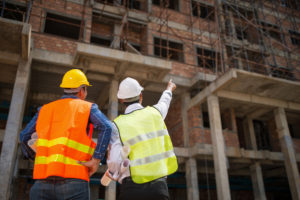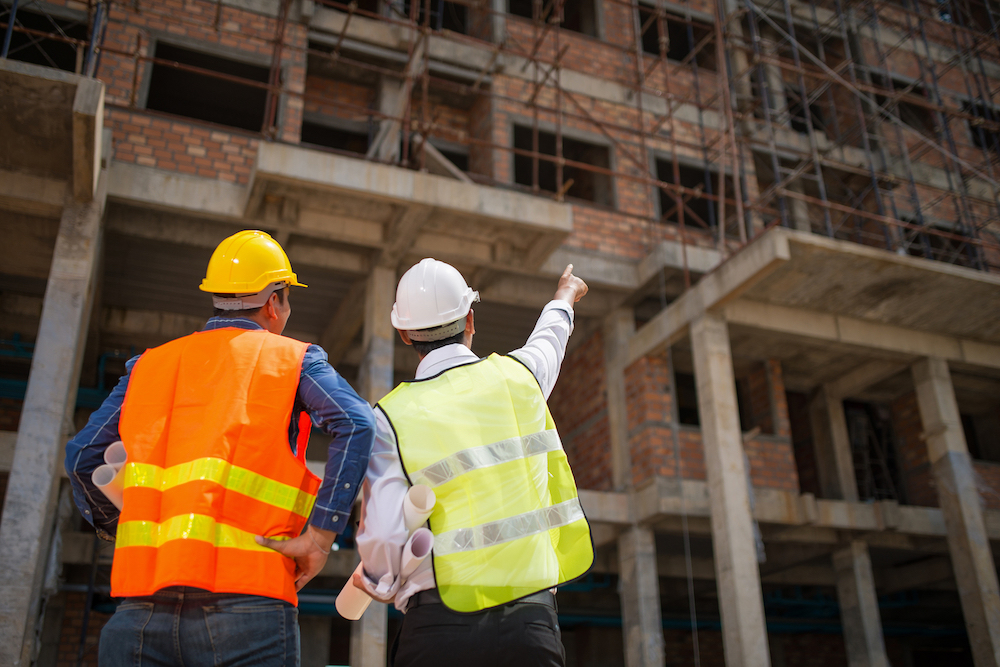
Construction delays come in all shapes and sizes. Left unchecked, they can build up and kill your project before you know what hit you! Luckily, construction delays can be eliminated (well, at least reduced) with adequate planning and coordination. That starts with proper project oversight and open communication. Let’s take a look at the common construction delays and how to reduce them on your project.
Common Causes of Construction Delays
Every project is different, and there are a seemingly infinite number of things that could go wrong. Still, there are some common culprits of construction delays.
Weather
Weather conditions can be highly unpredictable and difficult to plan for. Rain, winds, or freezing temperatures can make work by certain trades less efficient, or worse, impossible. Scheduling construction during certain times of the year can help reduce some of these delays, but no one trusts a weatherman!
Budget
Delays can be caused by a contractor misquoting a job estimate, or the owner running out of funds. When the money stops, so does everything else. Accurate budgeting will guarantee that the cash keeps flowing for materials, wages, and anything else on the project.
Overbooked Crews
Some project managers bite off a little more than they can chew. This leads to stretching their crews thin and rushing from project to project. Being able to allocate your work crew efficiently can make or break your construction schedule.
Lack of Communication
There are so many parties involved in projects that communication is crucial for the project’s success. Proper communication channels should be established early on in the build, or delays and mistakes will plague your work site.
Just Waiting Around (Poor Scheduling)
At some point in any construction project, people are just sitting around waiting. Waiting for delivery of materials, waiting for other trades to finish their work, or merely waiting for approvals. Slow decision making has a ripple effect on your project. Coordinating actions and approving items quickly can keep your project on schedule.
Related Reading:
Inexcusable Delays vs. Excusable Delays
What Is an Excusable Delay in Construction?
Beware of ‘No Damages for Delay’ Clauses
How to Minimize the Effect of Construction Delays
We mentioned it above – every project is different, and so is every delay. Depending on the relationships involved, some fixes may be more appropriate than others when a construction delay occurs. Still, some overarching ideas can help minimize the effect of construction delays.
Be realistic
First and foremost, setting realistic expectations is important. What’s eventually considered a “delay” might honestly be the result of poor planning. When owners, project managers, or contractors get too aggressive with their scheduling, they may be creating a project delay from the jump. Obviously, everyone wants to be known for performing fast builds that stay on budget. But it’s important to be reasonable, too.
Prepare in the Contract
Even with a well laid-out schedule, construction delays may occur. But how you prepare for delays and how you react to them is what will set up a project for success.
For large and complex projects, or really any project that may be prone to delays, it’s imperative to have a system in place to properly handle delays as they arise. When a game plan for (reasonably) managing construction delays is set out in the contract before the problem occurs, it’s easier to deal with the delay once it pops up.
A sound construction contract will set up a process for warning about impending delays, managing delays as they arise, and fairly allocating the cost of the delay.
Encourage Collaboration and Transparency
Collaboration and transparency are the keys to avoiding payment disputes, and they’re also the keys to managing construction delays.
By encouraging communication on the job (be that through preliminary notices, daily reports, or hopefully both), it’s easier to get everyone working toward a common goal: project completion. Further, creating a collaborative and transparent environment will empower project participants to notify you as soon as a delay occurs – which is invaluable.
Where sub-tier project participants feel like they need to hide delays and try to fix them on their own, a construction delay can really spiral out of control.
When delays do occur, be reasonable
If a construction delay does occur, being unreasonable about it won’t solve anything. A contractor, sub, or whoever may need a boot in the rear, and a delay may very well necessitate an adjustment to the payment schedule.
Still, it’s important to keep a cool head. If project participants are scared to notify you of a delay – that means issues may go unreported, and small problems could snowball. Delays might not be comfortable, but everyone in this industry should know they’re a genuine possibility (probability, even).
It’s easiest to be reasonable when construction delays are planned for (see number 1 above), but regardless – the #1 priority once a construction delay should be to resolve it as quickly and effectively as possible. Threatening vendors won’t go very far.


